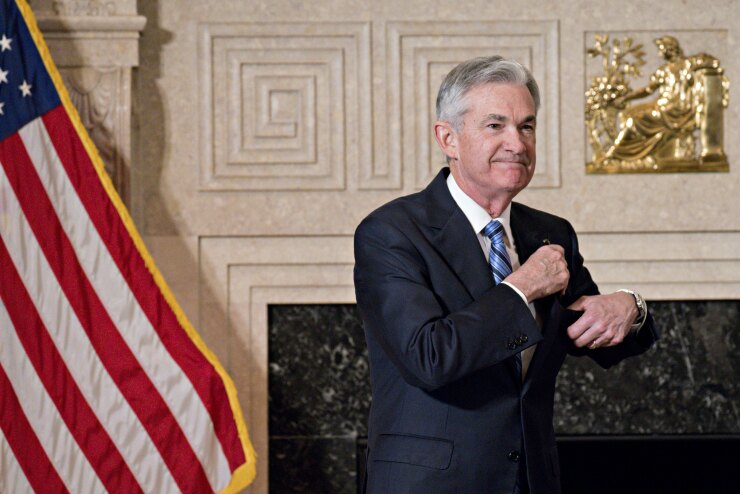WASHINGTON — Federal regulators proposed significant tweaks to the Volcker Rule Wednesday that would tailor and simplify the proprietary trading ban, homing in on larger banks with risky trading desks and easing requirements for others.
The proposal unveiled by the Federal Reserve Board reflects widespread agreement among banks and regulators that the 2013 regulation implementing the Volcker Rule was too complex.
Yet the new plan, which other regulators are expected to sign off on later this week, would make revisions to the proprietary trading ban mandated by the 2010 Dodd-Frank Act, rather than drastically overhaul it.

The proposed changes would include new definitions and categories to clarify what trades are permissible. For example, banks with consolidated gross trading assets and liabilities starting at $10 billion would be required to have a "comprehensive compliance program," while firms with “limited” trading activities of less than $1 billion would effectively be deemed in compliance with the rule.
"This proposed rule will tailor the Volcker rule’s requirements by focusing the most comprehensive compliance regime on the firms that do the most trading," Fed Chair Jerome Powell said in a statement prepared for an open meeting where the board was expected to approve the proposal unanimously. "Firms that do more modest amounts of trading will face fewer requirements."
Another significant proposed change would be to eliminate the so-called "60-day rebuttable presumption." The current rule prohibits trades of positions that a bank holds for 60 days or less, with the idea that such short-term holdings represent the kinds of activity the rule was intended to discourage.
But the industry has long argued that this provision is so restrictive that it blocks needed market liquidity vehicles. Under the proposal, the "short-term intent" standard would be replaced with a standard more tied to the accounting treatment of a holding. Agency staff said using accounting standards is more objective than the subjective approach taken with the rule currently.
"The accounting prong would provide that the Volcker Rule trading account includes any account used by a banking entity to purchase or sell one or more financial instruments that is recorded at fair value on a recurring basis under applicable accounting standards," according to a Fed staff memo released before the meeting. "The accounting prong would generally cover derivatives, trading securities, and available-for-sale securities."
Yet the proposal stopped short of dramatically overhauling the trading ban, which is named for former Fed Chairman Paul Volcker, who first proposed it as an addition to Dodd-Frank. Regulators from both the Obama and Trump administrations appeared to support the revisions.
“At this point in the cycle, it is premature to revisit the calibration of core capital and liquidity requirements for the large banking institutions,” Gov. Lael Brainard, an Obama appointee, said in prepared remarks for the board meeting. “Although I do not currently see a case for changes to the core capital and liquidity framework, I support efforts to implement the Volcker rule more effectively.”
The other agencies joining on the proposal will be the Federal Deposit Insurance Corp., the Office of the Comptroller of the Currency, the Securities and Exchange Commission and the Commodity Futures Trading Commission.
The FDIC board will meet Thursday to vote on the proposal as well.





